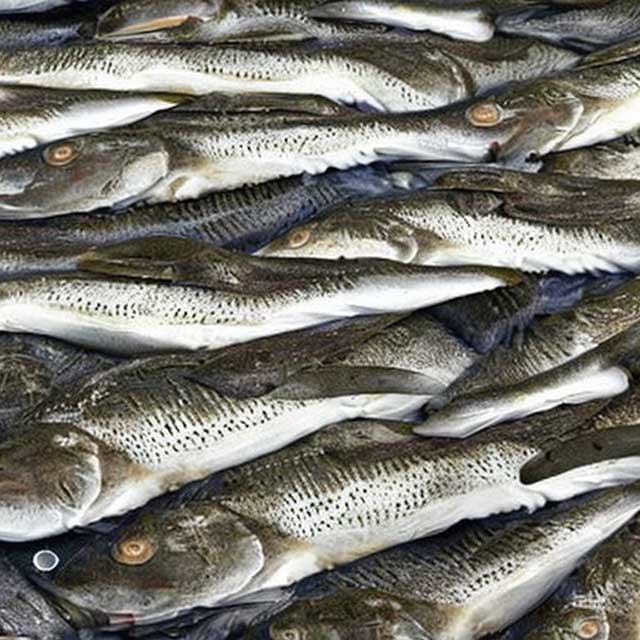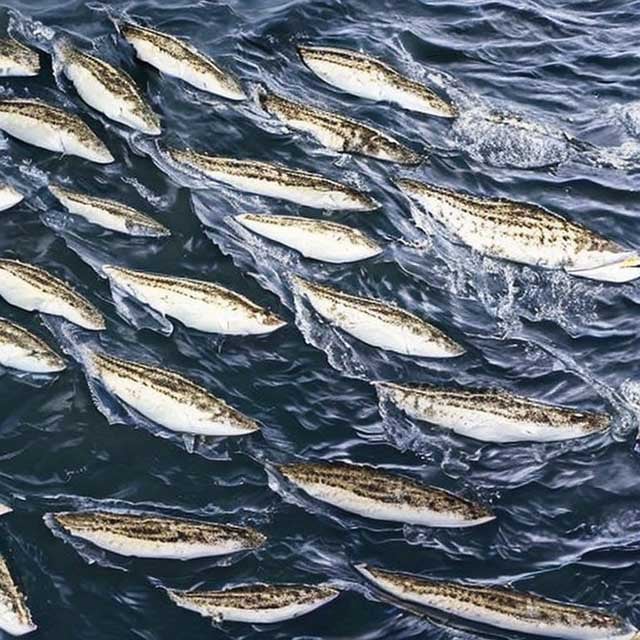Loss of Biodiversity: The Consequences of Overexploitation
Introduction: Understanding Biodiversity Loss
Biodiversity refers to the variety of life on Earth and is a crucial component of our planet's ecosystem. However, human activities, such as over-exploitation, are causing a significant loss of biodiversity, which is having a profound impact on our planet's health and resilience.
Main Cause: Overexploitation
One of the main drivers of biodiversity loss is overexploitation, which refers to the excessive use of natural resources at rates far greater than they are able to replenish themselves. This means that we are using resources at a faster pace than they are able to regenerate, which is leading to their depletion.
Overfishing: A Major Form of Overexploitation
 One of the most significant forms of overexploitation is overfishing, which occurs when we catch fish faster than they are able to reproduce. This leads to the depletion of fish stocks and often drives species to extinction. The increase in human populations and the growing demand for fish, combined with technological advancements, has led to a huge boost in the fishing industry, which is driving the overfishing of many species beyond sustainable levels.
One of the most significant forms of overexploitation is overfishing, which occurs when we catch fish faster than they are able to reproduce. This leads to the depletion of fish stocks and often drives species to extinction. The increase in human populations and the growing demand for fish, combined with technological advancements, has led to a huge boost in the fishing industry, which is driving the overfishing of many species beyond sustainable levels.
Impacts of Overfishing on Biodiversity
Overfishing not only damages the population of the targeted species but also has a domino effect on the wider food chain and ecosystem. The depletion of fish stocks can lead to changes in the food chain, which in turn can cause species at each level to go extinct. This can have long-lasting consequences for the ecosystem and the communities that rely on fishing for their livelihoods.
The Atlantic Cod: A Case Study
The collapse of the Atlantic cod population on the north-east coast of North America is a clear example of the damage that overfishing can cause. The Atlantic cod was commercially fished for centuries and was decimated in the early 1990s due to overfishing. The loss of this top predator led to a series of changes in the ecosystem, including an increase in the population of other species and a decrease in the numbers of zooplankton, which in turn had a knock-on effect on the phytoplankton at the bottom of the food chain. The cod population in this area has still not fully recovered, demonstrating the long-lasting impact of overfishing on the ecosystem.
The Importance of Marine Biodiversity
 Marine biodiversity is particularly important for several reasons. Firstly, it provides food to many human populations around the world, with about 3 billion people relying on seafood as their primary source of protein. Secondly, marine biodiversity provides social and economic benefits, with millions of people relying on fishing and related industries for their livelihoods. Finally, marine biodiversity is crucial for maintaining the stability of the planet, as it is the source of the majority of the world's oxygen supply.
Marine biodiversity is particularly important for several reasons. Firstly, it provides food to many human populations around the world, with about 3 billion people relying on seafood as their primary source of protein. Secondly, marine biodiversity provides social and economic benefits, with millions of people relying on fishing and related industries for their livelihoods. Finally, marine biodiversity is crucial for maintaining the stability of the planet, as it is the source of the majority of the world's oxygen supply.
What Can We Do to Tackle Overfishing?
As individuals, there are several things we can do to help tackle overfishing and protect marine biodiversity. This includes reducing the amount of fish we consume, avoiding species that are currently being overfished, reducing the amount of seafood waste, and supporting campaigns and organizations that fight to protect marine biodiversity. By taking these actions, we can help to maintain a supply of seafood to feed a growing population, whilst also protecting marine biodiversity, which is essential for human life.
FAQ: Understanding Loss of Biodiversity and Overexploitation
Q: What is biodiversity loss? A: Biodiversity loss refers to the reduction in the variety of life on Earth, including the extinction of species, the decline in populations, and the loss of ecosystems.
Q: What is overexploitation? A: Overexploitation refers to the excessive use of natural resources at rates far greater than they are able to replenish themselves. This means that we are using resources at a faster pace than they are able to regenerate, leading to their depletion.
Q: What is overfishing? A: Overfishing is a form of overexploitation that occurs when we catch fish faster than they are able to reproduce. This leads to the depletion of fish stocks and often drives species to extinction.
Q: How does overfishing affect biodiversity? A: Overfishing not only damages the population of the targeted species but also has a domino effect on the wider food chain and ecosystem. The depletion of fish stocks can lead to changes in the food chain, which in turn can cause species at each level to go extinct, impacting the overall biodiversity.
Q: Why is marine biodiversity important? A: Marine biodiversity is important because it provides food to many human populations around the world, provides social and economic benefits, and is crucial for maintaining the stability of the planet as it is the source of the majority of the world's oxygen supply.
Q: What can we do to tackle overfishing? A: As individuals, we can help tackle overfishing by reducing the amount of fish we consume, avoiding species that are currently being overfished, reducing the amount of seafood waste, and supporting campaigns and organizations that fight to protect marine biodiversity.
Q: Can overfishing be prevented? A: Yes, overfishing can be prevented through a combination of individual and collective action, including reducing demand, improving fishing practices, and creating marine protected areas. By taking these actions, we can help to protect marine biodiversity and ensure that our planet remains healthy and resilient.
Conclusion: what is loss of biodiversity?
In conclusion, the overexploitation of resources, particularly overfishing, is a major driver of biodiversity loss. By taking action as individuals, we can help to protect marine biodiversity and ensure that